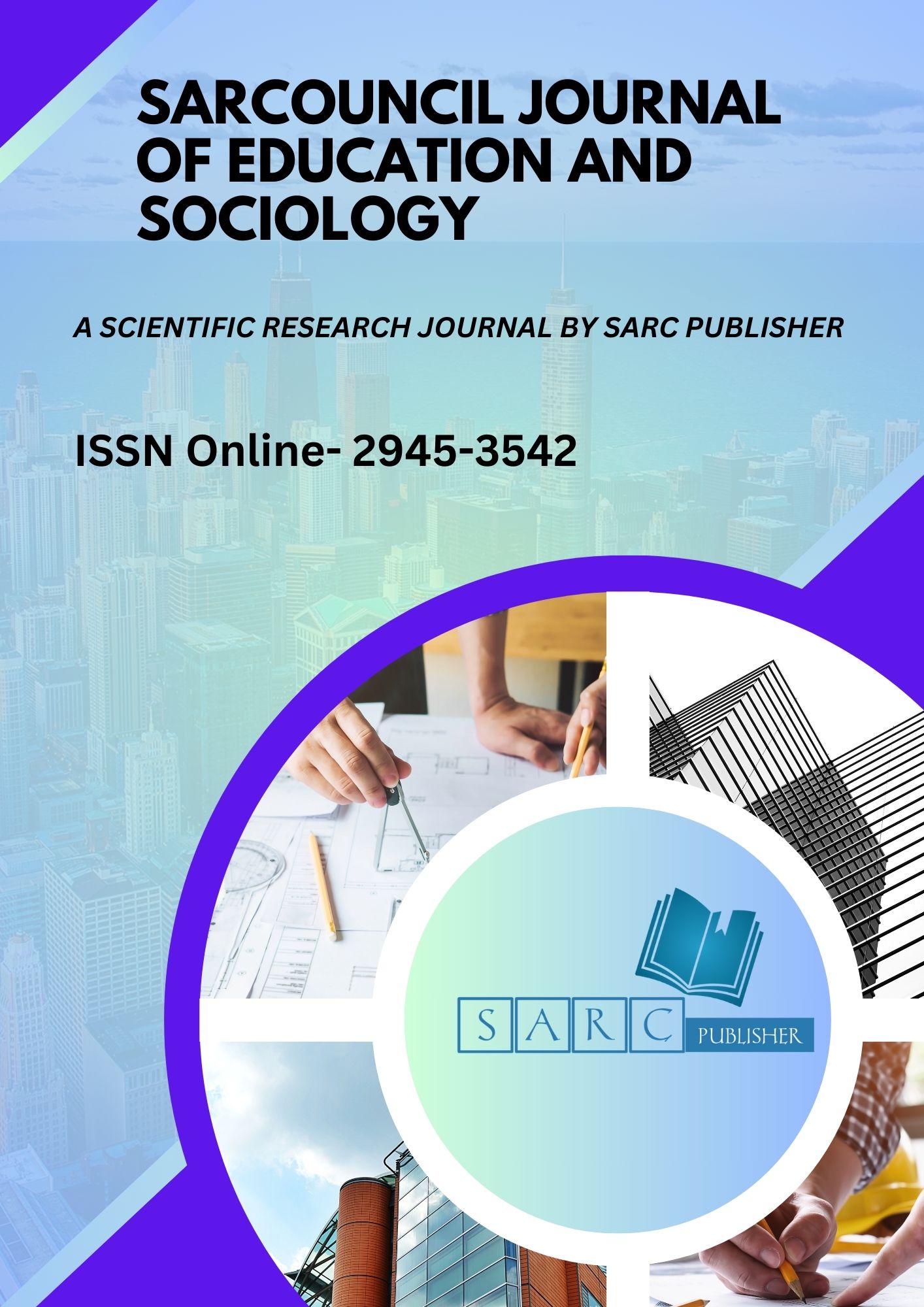Sarcouncil Journal of Education and Sociology

Sarcouncil Journal of Education and Sociology
An Open access peer reviewed international Journal
Publication Frequency- Monthly
Publisher Name-SARC Publisher
ISSN Online- 2945-3542
Country of origin- PHILIPPINES
Impact Factor- 3.7
Language- English
Keywords
- Education, Sociology, Social Sciences, Political Sciences, Mass Communication, Psychology, Art Education, Social Education, Adult Education, Education Administration, Educational Planning, Educational Theories
Editors

Dr Hazim Abdul-Rahman
Associate Editor
Sarcouncil Journal of Applied Sciences

Entessar Al Jbawi
Associate Editor
Sarcouncil Journal of Multidisciplinary

Rishabh Rajesh Shanbhag
Associate Editor
Sarcouncil Journal of Engineering and Computer Sciences

Dr Md. Rezowan ur Rahman
Associate Editor
Sarcouncil Journal of Biomedical Sciences

Dr Ifeoma Christy
Associate Editor
Sarcouncil Journal of Entrepreneurship And Business Management
Holistic Literacy by Emphasizing Values Integration across the Science and Mathematics Teaching and Learning
Keywords: holistic literacy,values, extent of integration, science and mathematics education
Abstract: This quantitative-qualitative research study investigated the extent of integration of values in the science and mathematics education in the elementary and secondary level. It also determined what scientific values were mostly prevalent in the science and mathematics classrooms. Four hundred science and mathematics teachers both from elementary and secondary levels, from big and small schools, either from private or public schools were taken as the respondents of the study. A researcher-made questionnaire on values integration on science and mathematics teaching was used to gather the data. Results revealed that most of the science and mathematics teachers highly integrated values in their teaching. However, when they were categorized into certain variables, science teachers highly integrated values as compared to mathematics teachers. Moreover, teachers who were teaching 20 years and below dedicatedly integrated values in the classroom highly than those who were already more than 20 years in the service. The same results can be noted in terms of educational qualification, that those masters and doctorate degree holders highly integrated values than those bachelor’s degree holders. When grouped into type of school and school level, all science and mathematics teachers highly integrate values in their teaching. In the interview conducted, the learners were described as digital learners, impatient and most of them were not intellectually honest. The teachers further attested that the learners be given the chance and opportunity to change their attitudes. During the focus-group discussion, the science and mathematics teachers emphasized that the integration of values among learners during the teaching-learning process was much affected by the behavior of the learners. Factors affecting the extent of integration depended largely on the quality of learners being enrolled, and the kind of attitude of learners. In such, it can be construed that the availability of materials in the classroom during the experiment can be a factor in the integration of values for patience and intellectual honesty were intervened. Thus, science and mathematics teachers were challenged to be more resourceful in handling science and mathematics subjects of attaining holistic literacy among learners
Author
- Dr. April Aura A. Cacho
- Associate Pprofessor IV; Northern Iloilo State University Lemery Campus; Lemery; Iloilo
- Dr. Fernan P. Tupas
- Associate Professor IV; Northern Iloilo State University Estancia Campus; Estancia Iloilo
- Dr. Rosario P. Noderama
- Associate professor V Northern Iloilo State University Victorino Salcedo Sara Campus; Lemery Iloilo
- Dr. Jose Chichany C. Cacho
- Associate professor V Northern Iloilo State University Lemery Campus; Lemery Iloilo
- Dr. Ma. Theresa G. Palmares
- Professor 3; Northern Iloilo State University Estancia Campus; Estancia Iloilo.

